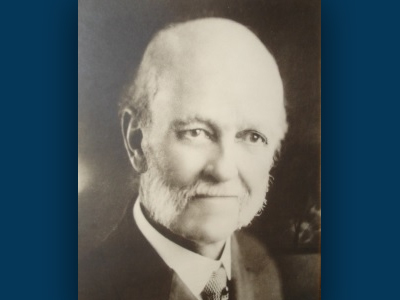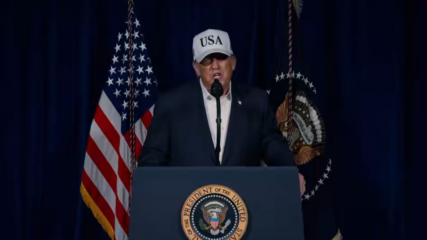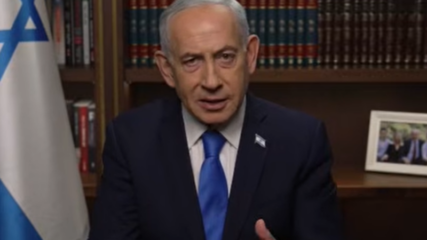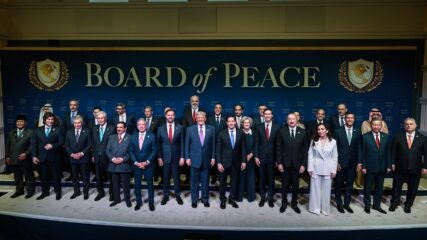March 5, 1891
After a conference of Christians and Jews in Chicago in November 1890, William E. Blackstone, a Methodist lay leader, evangelist and wealthy real estate investor, petitions President Benjamin Harrison and Secretary of State James Blaine to help create “a home for these wandering millions of Israel” in Palestine.
Blackstone was attracted to missionary work after being “saved” at a revival meeting near his birthplace in New York state. After getting married, he moved to Chicago, eventually leaving his successful business to concentrate full time on his work as an evangelist. Blackstone was a dispensationalist, a missionary who believed that the restoration of the Jewish people to the Land of Israel was necessary for the return of Jesus Christ.
As part of his missionary work, he visited Palestine with his wife in 1888 and was impressed with the efforts of the small Jewish community there. Upon his return, he organized the first conference between Christians and Jews in Chicago. Participants included three Reform rabbis and a number of Christian clergy. The major issue that was discussed was the plight of Russian Jewry, suffering under a wave of pogroms and a renewal of the anti-Jewish May Laws. While there was no consensus on a solution to the problem, many of the Jewish leaders were against the idea of a return to the Land of Israel. A unanimous resolution was passed concerning displeasure with the treatment of Jews in Russia; it urged the American administration to “use their influence and good offices with the authorities of all lands to accomplish this humane and righteous end” (Paul Charles Merkley, The Politics of Christian Zionism 1891-1948, London: Frank Cass Publishers, 1998, p. 68).
Building on the momentum of the conference and motivated by his beliefs in the restoration of the Jews and by his visit to the Holy Land, Blackstone sought to merge his two goals into a petition to American leaders. The petition reads, “Why not give Palestine back to them again? According to God’s distribution of nations it is their home, an inalienable possession from which they were expelled by force. Under their cultivation it was a remarkably fruitful land sustaining millions of Israelites who industrially tilled its hillsides and valleys. They were agriculturists and producers as well as a nation of great commercial importance — the center of civilization and religion.”
He secured the signatures of 413 notables of 19th century American life, including well-known clergy, major newspaper editors and public officials. Among the officials were New York Mayor Hugh Grant, Speaker of the House Thomas Brackett Reed and Congressman William McKinley, elected president in 1896. The signers also included J.P. Morgan, Charles Scribner and John D. Rockefeller.
Upon receiving the petition, Harrison, according to the Chicago Daily Tribune, “promised to give the subject serious consideration.”
But little came of the Blackstone Memorial Petition. Many American Jewish leaders were not in favor of what it offered.
View the text of the Blackstone Memorial at https://en.wikisource.org/wiki/Blackstone_Memorial









